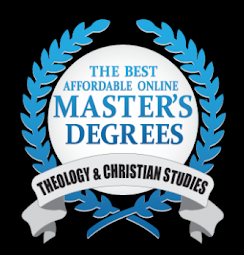Reformed systematic theology is the formalized, systematic formulation of traditional Christian beliefs and practices. The term “systematic” applies to the systematic way in which these beliefs and practices have been formulated by the Fathers of the Church over the past two thousand years. This bibliographic record includes works that seek to provide a comprehensive account of the various major doctrines of the Reformed religion. By focusing on this historical tradition, systematic theologies attempt to answer questions that have perplexed men and women for over two thousand years. In addition, systematic theologies also provide an explanation for the patristic (earliest) developments and debates within the reformed church.
The work of this discipline attempts to overcome some of the more fundamental difficulties faced by those who are members of the reformed tradition. In other words, it seeks to overcome objections to the true nature and claims of the Christian religion. As a result, the work of this movement produces a richer insight into the workings of scripture and into the workings of God's omniscience.
 |
Man and Christ (Reformed Systematic Theology, Band 5) : Beeke – reformed systematic theology | reformed systematic theology
|
In order to understand reformed systematic theology, it is helpful to view it as a series of perspectives or interpretations of scripture. In the first volume of this bibliography, the reader will see how the different perspectives develop from scripture. A closer examination of the perspectives developed within this first volume will show how each one relates to scripture and ultimately to God. The development of these perspectives begins with John Calvin, who is considered the father of reformed theological interpretation.
 |
Reformed Systematic Theology, Volume 5: Revelation and God : Beeke – reformed systematic theology | reformed systematic theology
|
Calvin's thought is characterized by its focus on natural truths and by his emphasis on the absolute submission of every person to the one true crucifier, Jesus Christ. Calvin's works on natural and biblical truths form the basis for much of what he teaches in his Institutes. Parts two and three of his Institutes deal primarily with his personal interpretation of scripture and his exegetical works. The first volume of this series, which we will begin with, is called Institutes of the faith, and consists of thirteen volumes.
 |
Reformed Systematic Theology, Volume 5 + Volume 5 (Beeke) – reformed systematic theology | reformed systematic theology
|
Reformed systematic theology proper starts out with John Calvin's exposition of the nature and work of God. He begins this exposition by contrasting the truths of traditional religion with those of revealed truth. In doing so, he reveals that God's revelation is in reality the only rule of faith and of life. This leads him to declare that salvation is dependent not on our actions, but on God's free will which he imputes to us through his son Jesus Christ.
 |
Reformed Systematic Theology, Volume 5: Revelation and God – reformed systematic theology | reformed systematic theology
|
In the first several books of this series, Calvin presents his systematic theology as a way of interpreting scripture and drawing up a system of exegetical and dogmatic beliefs. The idea here is to show how the truths of scripture can be used to support or oppose the claims of traditional theology. In later books, Calvin adds many exegetical and exhortation texts. In the Institutes of reformed systematic theology, he deals mainly with the three main perspectives of traditional theology, though he also provides certain important insights into the issues of grace, merit, and election.
In the last two books of the Institutes of reformed systematic theology, Calvin develops his main argument in stronger detail. His aim in this final volume is to show that the concept of grace is incoherent. He then goes on to describe the various consequences of this fact. In the final volumes, Calvin presents a number of further works, including sermons on the church and political matters. The Institutes of reformed systematic theology has become widely available, and most students today have read it and been able to understand its main ideas and arguments.
However, a recent generation of philosophers and scientists have challenged the accuracy of reformed fundamentalism. Some of these challenge the notion that Calvinism contains a truth which is beyond any possible argument. Others point out the difficulties which confronted Calvin in regard to the doctrine of election. While a number of problems may still exist, the majority of modern scholars accept the idea that systematic theology is not a mere theory, but is an actuality which can be verified by proper application of the doctrine of election. In addition, there are many recent works which dismiss universalism as a theory or argument, pointing out the fact that the theory rests on the realities of faith and salvation.





Post a Comment for "Reformed systematic theology"